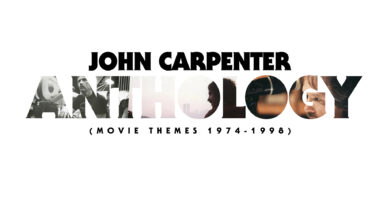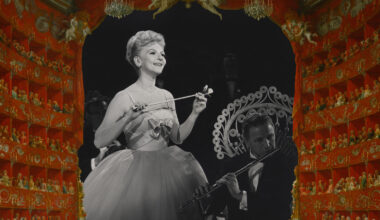Debut solo release from ex-Air member is a sweet lesson on the classical and the contemporary

“Contrepoint”, or “counterpoint”: the relationship between voices that rely on each other for harmony but are independent in terms of rhythm and contour. Two ideas cohabiting in the same piece of music, complete on their own but needing the other to make sense of their existence.
This album began, according to Nicolas Godin, quondam member of Air, with the master of counterpoint – Bach. Or, more specifically, with renowned Canadian pianist Glenn Gould playing Bach. Gould’s interpretations of the baroque composer are charming and totally individual, and this inspired Godin to start playing some JS of his own, progressing through ’18 Little Preludes And Fugues’ to the fiendish ‘The Well-Tempered Clavier’. Godin then turned his attention from attempting to make an album of Bach to reinterpreting JS from a modern perspective, incorporating video game soundtracks, pop ballads, jazz, bossa nova, film scores, and more.
Each track on ‘Contrepoint’ uses a Bach composition as its basis, but refracts it over and over through the lens of popular culture of the last 50 or so years. ‘Orca’ is half 8-bit prog rock, half the record store in ‘A Clockwork Orange’. There’s the beautifully suave ‘Clara’, complete with seductive vocals from Marcelo Camelo over some gentle jazz bar instrumentation; ‘Bach Off’ is driven by confrontational drumming punctuated by bursts of sound that recall video game transitions; ‘Glenn’, a nod to Godin’s muse, features a synth riff to rival ‘Together In Electric Dreams’. The video to ‘Widerstehe Doch Der Sünde’ stars surfing zombies.
Listening to ‘Contrepoint’ is a somewhat disjointed experience, in that it’s like viewing the internet on a Bach-themed browser. You flick between tabs, constantly redirecting your attention from one place to another. Everything is connected, but at the same time disparate. Someone sends you a link to a Glenn Gould documentary and elsewhere you’re reblogging a post about spaceship aesthetics – all with the faint glimmer of a classical heritage twinkling in the background.
This isn’t a patronising or snobbish approach to bringing classical music to a new audience. Like Horace’s idea that the best poetry mixes the ‘utile’ (beneficial) with the ‘dulci’ (sweet), or Lucretius describing his aims presenting difficult philosophy in poetic verse with the image of a doctor sweetening medicine with honey to make it more palatable, Godin isn’t forcing us to listen to Bach against our will. He is slipping little passages to us, dressed in much more familiar trappings.
It’s an accepted idea in literary theory that all works produced now are amalgamations of previous texts, that nothing truly new can be written, that today’s texts are to some extent just permutations of texts that already exist. In conceiving ‘Contrepoint’, Nicolas Godin seems to be working within a similar vein, fully embracing the fragmented nature of this take on composition. The baroque and the modern become totally interdependent on ‘Contrepoint’. As we engage with it, we ourselves are resting in the counterpoint.





